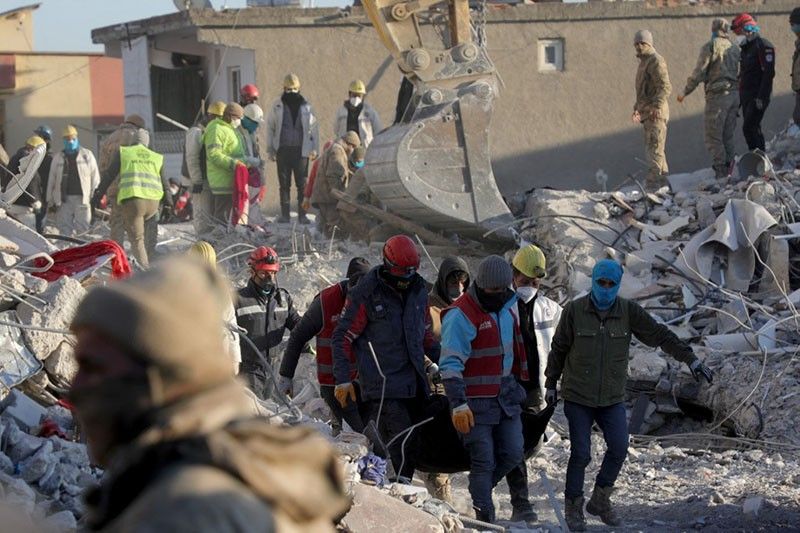Corpses from natural disasters rarely pose health risk — Red Cross, WHO

GENEVA, Switzerland — Despite belief in some quarters to the contrary, the bodies of victims of natural disasters or armed conflict rarely pose a health threat to communities, the Red Cross and the World Health Organization said Friday.
Victims who have died from trauma, drowning or fire "do not normally harbor organisms that cause disease with common precautions," the agencies said.
They added that exceptions are deaths resulting from infectious diseases such as Ebola, Marburg or cholera, or if disaster strikes in an area where infectious diseases are endemic.
Both also noted the risk of diarrhoea from drinking water contaminated by faecal material from dead bodies.
But routine disinfection of drinking water is sufficient to prevent waterborne illness, even though bodies should not be left in contact with drinking water sources, the agencies said.
Their advice comes after major flooding in Libya and an earthquake in Morocco, with death tolls in the thousands.
Authorities often try to bury the dead as swiftly as possible, which can heighten suffering for relatives and create legal and administrative problems for victims' families.
But the idea that corpses can spread disease is a "misunderstanding (which) often pushes people to hastily bury the dead and make it more likely that people will go missing, leaving their loved ones in anguish for years to come," said Bilal Sablouh, regional forensics advisor for Africa at the International Committee of the Red Cross.
"Those who survive an event like a natural disaster are more likely to spread disease than dead bodies," added Pierre Guyomarch, head of forensics at the Red Cross.
Both the Red Cross and the WHO recommend identifying bodies and then burying them in individual, clearly marked graves whose locations are then documented for later traceability.
"We urge authorities in communities touched by tragedy to not rush forward with mass burials or mass cremations," said Dr Kazunobu Kojima, WHO medical officer for biosafety and biosecurity in its Health Emergencies Programme.
"Dignified management of bodies is important for families and communities, and in the cases of conflict, is often an important component of bringing about a swifter end to the fighting," he said.
- Latest
- Trending






























